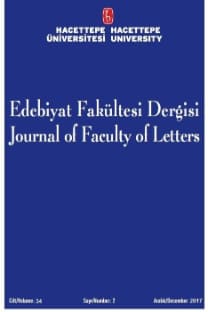The image of German(y) of Turkish students in the German language learning process
The image of German(y) of Turkish students in the German language learning process
Besides language teaching, cultural promotion and intercultural communication are also among the general objectives of foreign language course books. Learning a foreign language means learning the countries, societies and cultures of the target language owing to the close relation between language and culture. How much and to what extent cultural transmission should be included in a foreign language course book and how informational content will be determined remain controversial. In foreign language teaching, there are those who think that cultural transmission is a natural reflection and those who argue that it is a cultural propaganda. However, it would not be wrong to say that there is also an image-making process through language teaching for the country and people of target language(s).This study is conducted to examine the opinions and comments of the university preparatory school students, who had no previous German instruction, on Germany, German people and German language with a questionnaire in line with their language levels after one-year German instruction. The questions and statements in the questionnaire are prepared on the basis of the content of the three-volume German course book 'Lagune', studied for the whole academic year. With some questions and statements, students are asked to make generalizations using the knowledge they have acquired and subjective judgments they have made. Two basic questions are sought to be answered by the response analysis of the questions and statements: 1. How much of the basic historical, geographical, political and social information in the course book has been learnt? 2. How do the students perceive German people and German social life subjectively as a result of cultural transmission through the course book?The results show that the students have difficulties in the process of learning German and consider German a difficult language although they generally have an average amount of objective knowledge about geographical, historical, political and social issues of Germany and that they have positive attitudes to German individual, social and family life. Another point that has been indicated by the results is that the students take more interest in cultural issues which reflect various aspects of daily life than numerical and static information and data during foreign language learning process.
___
- Althaus, H.-J. (1999). Landeskunde. Anmerkungen zum Stand der Dinge. In: Informationen Deutsch als Fremdsprache, 26. Jahrgang, Nr. 1, Februar, 25- 36.
- Ammer, R. (1998). Das Deutschlandbild in den Lehrwerken für Deutsch als Fremdsprache. In: Kast Bernd und Neuner Gerhard (Hg.): Zur Analyse, Begutachtung und Entwicklung von Lehrwerken für den fremdsprachlichen Deutschunterricht. Berlin und München: Langenscheidt Verlag, 31-42.
- Aufderstraße, H., Müller, J. und Storz, T. (2008). Lagune. Lehrwerk für Deutsch als Fremdsprache. Band 1-2-3. Ismaning: Hueber.
- Biechele, M. und Padros, A. (2003). Didaktik der Landeskunde. Fernstudieneinheit 31. München:Goethe-Institut Inter Nationes.
- Breitsameter, A. und Aufderstraße, M. M. (2007). Lagune 1, Lehrerhandbuch. Ismaning: Hueber Verlag.
- Erdmenger, M. (1996). Landeskunde im Fremdsprachenunterricht. 1.Auflage. Ismaning: Hueber Verlag.
- Herrmann, S. (2008). Rezension des Lehrwerks "Lagune" in: Zeitschrift für Interkulturellen Fremdsprachenunterricht 13, 1-3. http ://zif.spz.tu-darmstadt.de/jg-13-1 /allgemein/rezens35.htm (29.06.2010)
- Huneke H.-W. und Steinig W. (2002). Deutsch als Fremdsprache. 3. überarbeitete und erweiterte Auflage. Berlin: Erich Schmidt Verlag.
- Krumm, H.-J. (1998). Landeskunde Deutschland, D-A-CH oder Europa? Über den Umgang mit Verschiedenheit im DaF-Unterricht. In: Informationen Deutsch als Fremdsprache, Oktober, 523-544.
- Rall, M. (1994). Sprachbrücke I. Handbuch für den Unterricht. München: Klett Edition Deutsch.
- Wormer, J. (2004). Landeskunde - eine transkulturelle, vergleichende Wissenschaft. In: Zeitschrift für Interkulturellen Fremdsprachenunterricht. http://spzl.spz.tu-darmstadt.de/projekt_ejournal /jg-09-3/beitrag/wormer3.htm (22.05.2010)
- ISSN: 1301-5737
- Yayın Aralığı: Yılda 2 Sayı
- Başlangıç: 1983
- Yayıncı: Emine Erdoğan Özünlü
Sayıdaki Diğer Makaleler
İnternet tabanlı psikolojik hizmetler ve bu alana özgü etik ilkeler: bir gözden geçirme
Gümrük alanında çeviriye yönelik terminoloji çalışmasında karşılaşılan sorunlar
"White" masters and "dark" servants in A. S. Byatt's " Morpho Eugenia"
Sessiz Bahar'dan sonra ses getiren elli yıl: kadın, çevre, sağlık
Das Deutschlandbild beim Lernprozess von deutschlernenden türkischen studenten
"White" masters and "dark" servants in A. S. Byatt's " Morpho Eugenia"
Üniversite öğrencilerinde dolaylı saldırganlığın kullanımında cinsiyet farklılıkları
